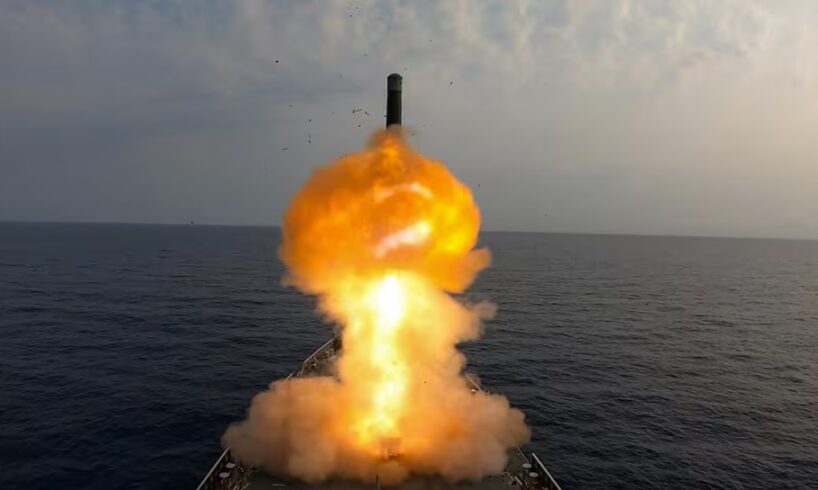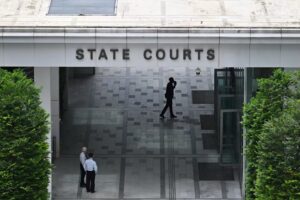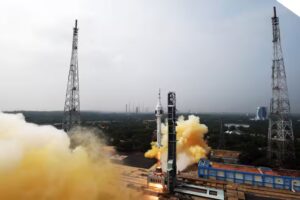
India’s National Maritime Foundation (NMF) signed two memoranda of understanding on Wednesday with Japan’s Research Institute for Peace and Security (RIPS) and Papua New Guinea’s Pacific RBS to strengthen what has been described as “Track 1.5 and Track 2” engagement in Indo-Pacific maritime security. The agreements were concluded during the second day of the Indo-Pacific Regional Dialogue (IPRD 2025), the Indian Navy’s annual conference on maritime strategy. Both MoUs aim to deepen cooperation in research, policy development, and capacity-building across the region.
Vice Admiral Pradeep Chauhan (Retd), Director-General of NMF, said the MoUs will help bridge the gap between formal diplomacy and semi-official exchanges. “There is requirement for intensive interaction with a number of Track 1.5 and Track 2 institutions,” VAdm Chauhan said. “There are very few countries on the planet whose Track 1 institutions know how to leverage Track 1.5 or Track 2.”
He added that such frameworks allow think tanks and semi-official actors to generate guidance that official policymakers can later adopt or disregard. “The specific rationale for these two MoUs,” VAdm Chauhan said, “is that as Tokuchi-san mentioned, India has engaged in a new comprehensive agreement with Japan, and this MoU will allow both organisations to easily build up the guidance that Track 1 organisations can accept or reject.”
Add Zee News as a Preferred Source
Expanding India’s Track 1.5 footprint
The concept of Track 1.5 diplomacy combines official and unofficial elements—where government officials, academics, and retired officers engage informally to complement state-level policy. Track 2 dialogues involve non-governmental experts and think tanks, providing flexible spaces for candid exchange.
VAdm Chauhan said the new partnerships would create “as many avenues of engagement as can be done,” particularly in regions of strategic competition. “With PNG, we are keen that we should be able to build a relationship with PNG,” he said. “PNG is already being extremely heavily courted by Australia and China. So, we have to be in the game and we have to compete. We want to be an early bird in this game in all aspects maritime.”
The agreements, he added, include provisions for exchange programmes, joint writing of articles, and shared perspectives on regional maritime issues.
Japan link adds an academic pillar to security ties
At the signing, Professor Hideshi Tokuchi, president of RIPS, said the MoU built on a long-standing partnership with NMF.
“RIPS is Japan’s oldest independent think tank dedicated solely to security studies. Nine days ago, it turned 47 years old. The long-time partnership between RIPS and NMF led to the signing of this very important MoU. It’s time for us to proceed and put the MoU into real practice,” he said.
Tokuchi described maritime security as one of RIPS’ main academic interests, citing Japan’s dependence on sea trade and maritime stability. He also linked the agreement to the renewed Japan–India Joint Declaration on Security Cooperation, signed two months earlier.
“The real cooperation between the two countries based on the JDSC must be built on the academic foundation. So, I hope this MoU and continuing collaboration between RIPS and NMF will be able to support the enhancement of security relationship between Japan and India,” he said.
Tokuchi later described the MoU as “an overarching framework for cooperation,” adding that if NMF were to send its fellows or students to Japan, “we can collaborate with them—it all depends on the future coordination.”
Building bridges in the Pacific
Commodore Peter Ilau, who leads Pacific RBS, said the MoU would connect the Pacific Islands region more closely with Indian maritime research and governance efforts.
“This MoU is a strategic bridge between vision and execution,” Ilau said. “I believe it is a shared commitment building regional capacity, shaping maritime organisations for governments and strengthening the Pacific’s collective voice in the Indo-Pacific.”
Officials said the partnership with Papua New Guinea aligns with India’s efforts to expand its maritime outreach in the South Pacific, where major powers are competing for influence.
The two MoUs, officials said, reflect India’s growing use of Track 1.5 and Track 2 diplomacy as instruments of strategic engagement—linking maritime academia with policy across Asia and the Pacific.





